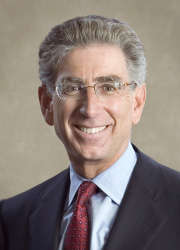Here are some interesting stories from the past week:
The Difference Between Wrong and Illegal by Charles H. Green
Do you know the difference between a wrong action and an illegal action? If you don’t, you are not alone. But neither are you to be trusted.
Ghostblogging will be the death of social media in the law by Kevin O’Keefe in Real Lawyers Have Blogs
We’re just scratching the surface of what social media can do for lawyers and law firms. But rather than learn how to harness this powerful relationship building tool, one with its roots in traditional client development, I’m finding some lawyers and law firms would rather pay to have someone else participate in social media for them.
Advisors Allowed to Get Social by Mark Astarita in onWall Street
As social media sites have become more popular with the general public, advisors have been drawn to them. But firms have generally banned their use because of advertising restrictions, and the lack of clear guidance from the regulators as to their use. That partially changed in January, with FINRA’s release of Regulatory Notice 10-06-Guidance on Blogs and Social Networking Web Sites. The notice dealt with five main areas.
Cahill taps firms tied to state pension investor By Aaron Lester, Michele Richinick, and Walter V. Robinson in the Boston Globe
Cahill, in an interview, expressed no qualms about receiving campaign contributions from companies that have or want business from the [Massachusetts] treasurer’s office and the five agencies he oversees, including the pension board. In fact, he acknowledged that he and his campaign aides routinely seek contributions from such companies.
Judge Uncorks True Feelings About Compliance Monitors by Matt Kelley in Compliance Week
Most events in federal court are terribly dull, the carefully scripted culmination of legal briefs fired back and forth among various parties for years. But once in a great while, a judge goes a little nuts—as happened last week with the new hero of compliance officers everywhere, District Court Judge Ellen Segal Huvelle.






